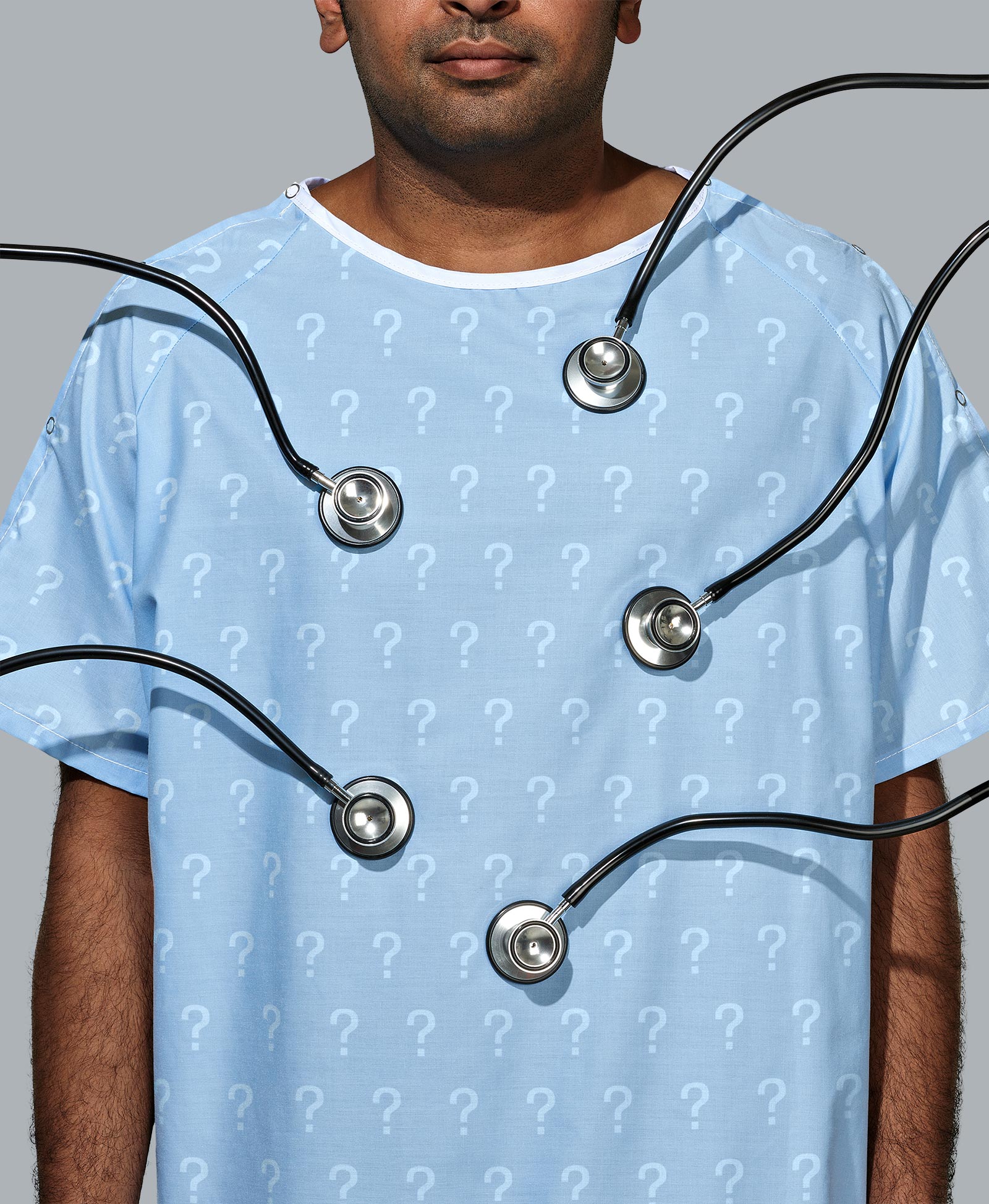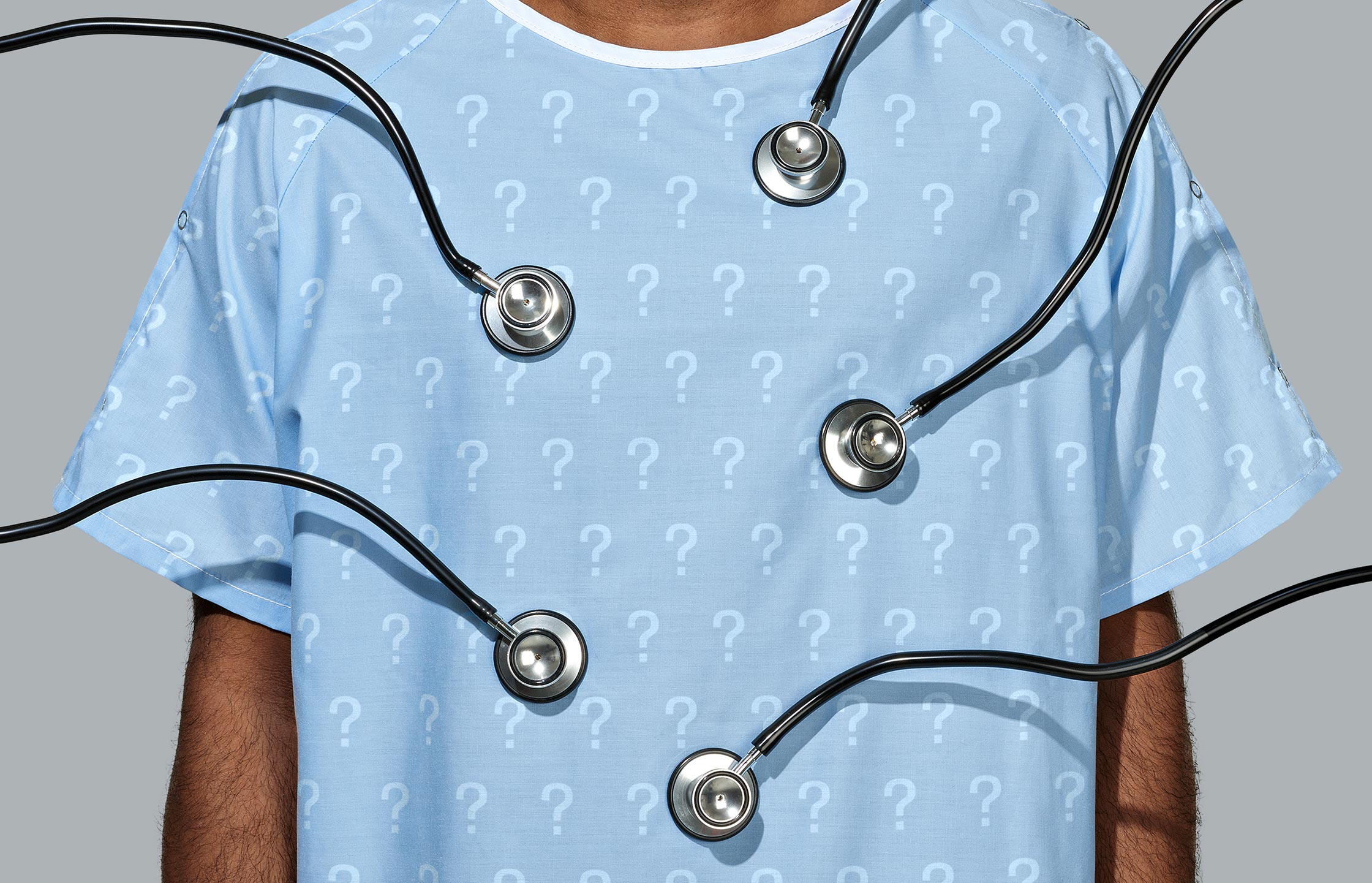NextGenMD: A New Lesson Plan
The Miller School Class of 2024 embraces an innovative curriculum designed to produce transformational leaders
By Christine Morris
Illustration by Clint Blowers

D
reams of becoming a physician began early for Matthew Alonso — in part because his father, a Miami-Dade firefighter for three decades, was diagnosed with multiple myeloma in 2010. When Alonso learned about the Miller School of Medicine’s revolutionary NextGenMD curriculum, “my 23-year-old self was jumping up and down like my 13-year-old self,” he said. “I knew I wanted to come here for medical school.”
Alonso and his fellow first-year students embraced the new curriculum as it was launched this fall in the extraordinarily complicated setting of a global pandemic. Despite the obstacles that no one could have anticipated, the pioneers of the Class of 2024 know that the new ways of teaching and learning mean they will be significantly better prepared to tackle COVID-19 and the public health challenges that follow it.
“Our new curriculum will equip you with the necessary tools to become transformational leaders who will shape the future of medicine and champion discovery and its translation into clinical interventions to improve the health of humanity,” Henri R. Ford, M.D., M.H.A., dean and chief academic officer of the Miller School, said in welcoming the students. “Thanks to the incredibly hard work of the teams that developed this innovative curriculum, you will be uniquely prepared to respond to the challenges posed by COVID-19 and other future pandemics.”
A new focus on health system science is central to creating these leaders of the future of medicine, said Latha Chandran, M.D., M.P.H., executive dean and founding chair of the Department of Medical Education. In the new curriculum, which will be launched one class at a time, every student will earn a second degree or choose a scholarly concentration pathway.
Following career pathways
The pathways begin in January in 26 areas, ranging from biomedical engineering, to ethics and humanities, to neuroscience and behavioral science. Each student will follow a curriculum, conduct research in their area, and complete a capstone project. One of the options is an accelerated pathway to residency, completing medical school in three years. Each pathway director did an “elevator pitch” to the freshmen this fall, and then the students submitted their top three choices. There will be five or six students in each pathway.
“When you launch a curriculum, there’s a first of everything for four full years until the first graduation,” said Amar Deshpande, M.D., assistant dean for medical education and leader of the curriculum redesign. “We’re constantly tweaking. In March, when the pandemic became clear, we had to say, ‘Let’s literally redo large portions in three months.’”
The growing pains will continue, Dr. Deshpande said, throughout the first four years of the new curriculum — until the first graduation. Even before the pandemic, the Miller School was looking for students who would thrive as partners in bringing the new vision to life.
“We were intentional in the admissions process,” he said. “We told the candidates they had an opportunity to be part of the process. They are the reason it will be successful.”
It’s hard to know how many of the first-year challenges are because of the redesign and how many are because of the pandemic. In the Miller School’s new case-based curriculum, “the way we envisioned it was 40 students discussing cases, with a group of five at each table,” Dr. Deshpande said. “You can pull it off in Zoom, but not exactly the way you would like it to be.
“Thanks to the pandemic, we’re really running two new curricula,” he added. “A constant question is ‘What did we learn that we can build on for the latter part of this year as well as next year?’”
Brett Colbert, a third-year M.D./Ph.D. student who has been extensively involved in the curriculum redesign, summarized the constant tweaking when he addressed the new students.
“Sometimes you’ll feel like a pioneer, and sometimes you’ll feel like a crash test dummy,” he said. “Either way, you are very important and an essential part of the team. Don’t forget that.”
Alonso, who was born and raised in Miami and is committed to staying here to help the community, couldn’t be more excited about this opportunity. During the medical school interview process, he learned how NextGenMD would accelerate the journey to considering specific patient cases and learning clinical skills.
“I was excited to be on the forefront of that,” he said.
‘A perfect case-based study’
Dealing with the COVID-19 pandemic “is a perfect case-based study,” Alonso said. Case-based learning stimulates critical thinking rather than memorization. In the morning, the students participate in a lecture about lungs, for example, and then they go into Zoom breakout rooms to discuss a specific patient’s symptoms and consider what might be happening with her lungs and other organs, coming up with possible diagnoses and treatments.
“Our hope is that this type of learning will lead to more accurate diagnoses and better patient outcomes, which is the holy grail of any curricular innovation,” said Gauri Agarwal, M.D., associate dean for clinical curriculum.
In Phase 1 of the new curriculum, the foundational sciences are presented in a shorter period than the traditional curriculum to allow earlier experiences with patients. Foundational, translational, and health system sciences are embedded throughout the integrated clerkships of Phase 2.
Alonso is in the Miller School’s acclaimed M.D./M.P.H. program. “Access to care is something I need to pursue long term,” he said. “I want to use my own background and knowledge of the area and the patient population to improve health.”
Faculty and students alike are enthusiastic about NextGenMD’s strong emphasis on mentorship. The students are divided into groups of eight or nine, and every student will have the same faculty physician as their mentor — known as a longitudinal clinical educator — for the full four years.
“We’re truly focusing on the personal and professional development of every learner,” Dr. Chandran said.
Dr. Agarwal believes four years of guidance from the same skilled physician will make a huge difference. “Receiving feedback from the same faculty member will fundamentally change the experience of being a medical student at UM.”
Alonso, who says he knows Miami “is where I want to practice medicine for the long haul,” has already benefited from the emphasis on mentorship. “Everybody is super open to help and wanting to jump in whenever,” he said. “They are a listening ear and an advocate on your behalf.”
An individualized learning experience
The individualized learning experience that each student chooses and helps design will give them the skills to become outstanding physicians, educators, advocates, and researchers, Dr. Chandran said. “I am so excited to be part of this journey.”
She told the new class that the Miller School family is committed to helping them succeed.
“I was impressed with the number of people who have been thoughtfully committed to making this a great experience for you,” she said. “What we need from you is feedback — what worked, what didn’t. We want to make it better, to become a top-notch institution in the country.”
Alonso and his colleagues are grateful to have begun the path to what Dean Ford calls “the most noble, the most exciting, the most exhilarating, and the most fulfilling career anyone can pursue.”
The Dean encouraged the students to be driven by “the relentless pursuit of excellence. You have signed up for lifelong learning in order to serve your patients.” The foundational attributes of character, compassion, honesty and integrity are essential for success, he said, as are the extensive support systems in place to help students when they need it.
“Members of the great Class of 2024,” Dean Ford said, “you are the hope of humanity.”![]()



